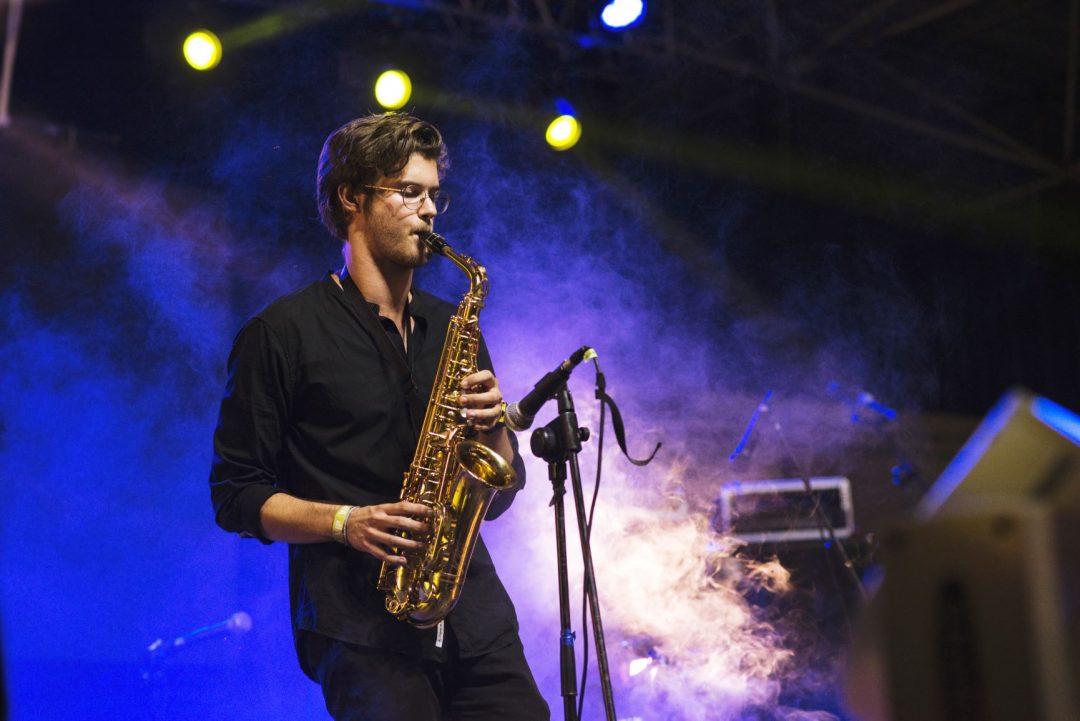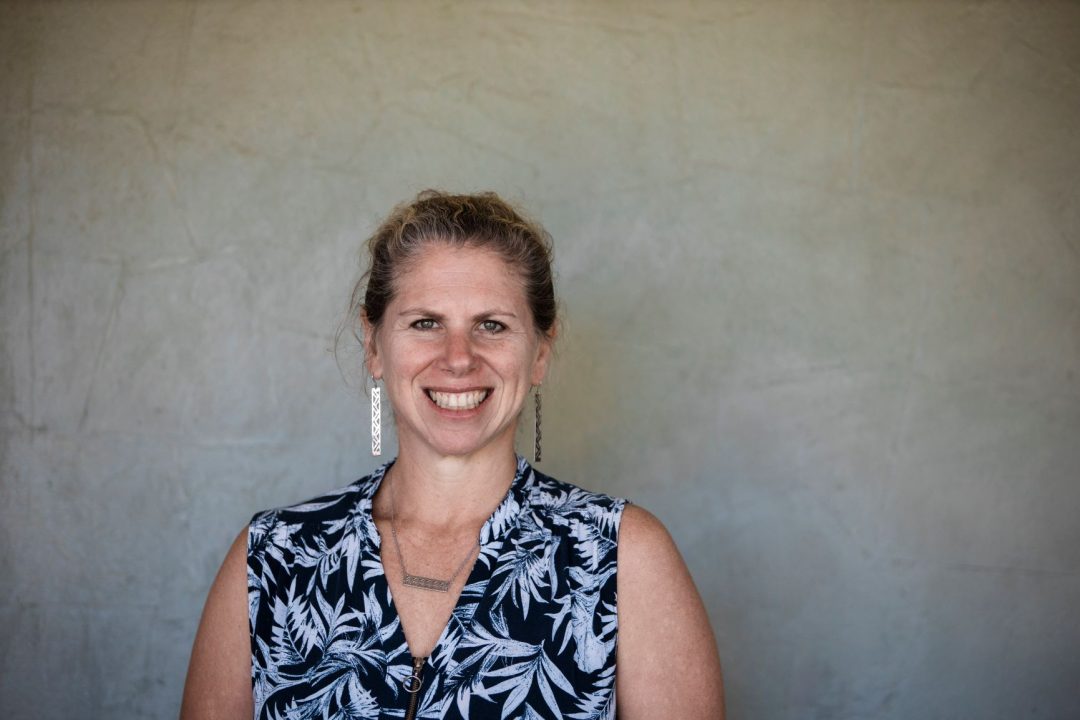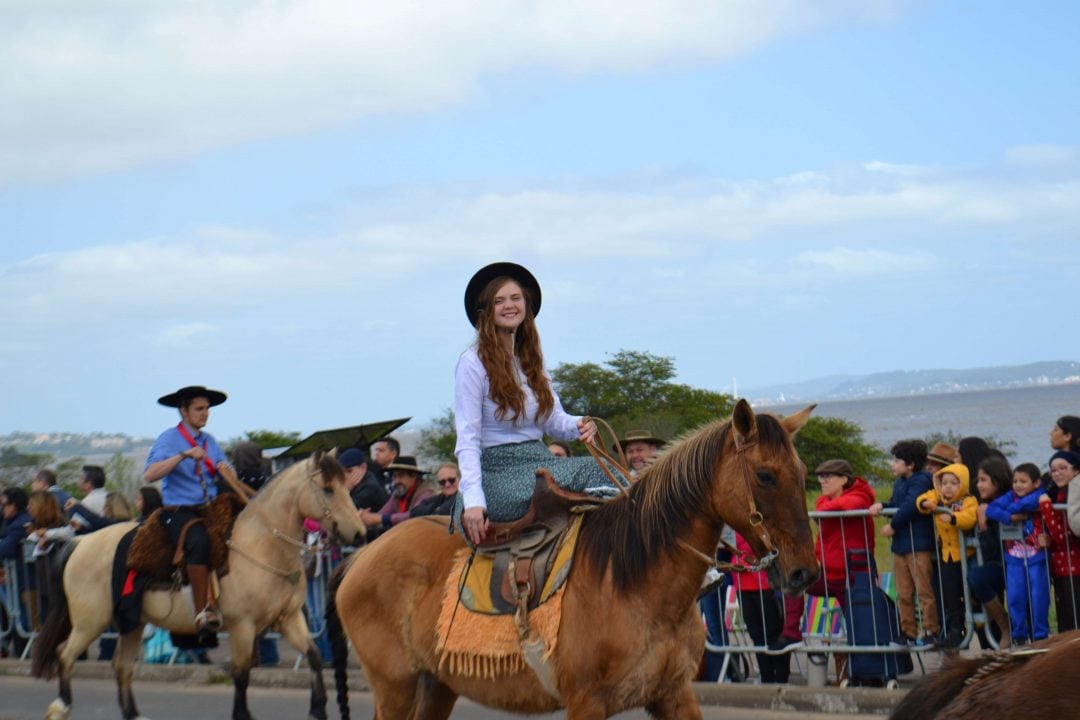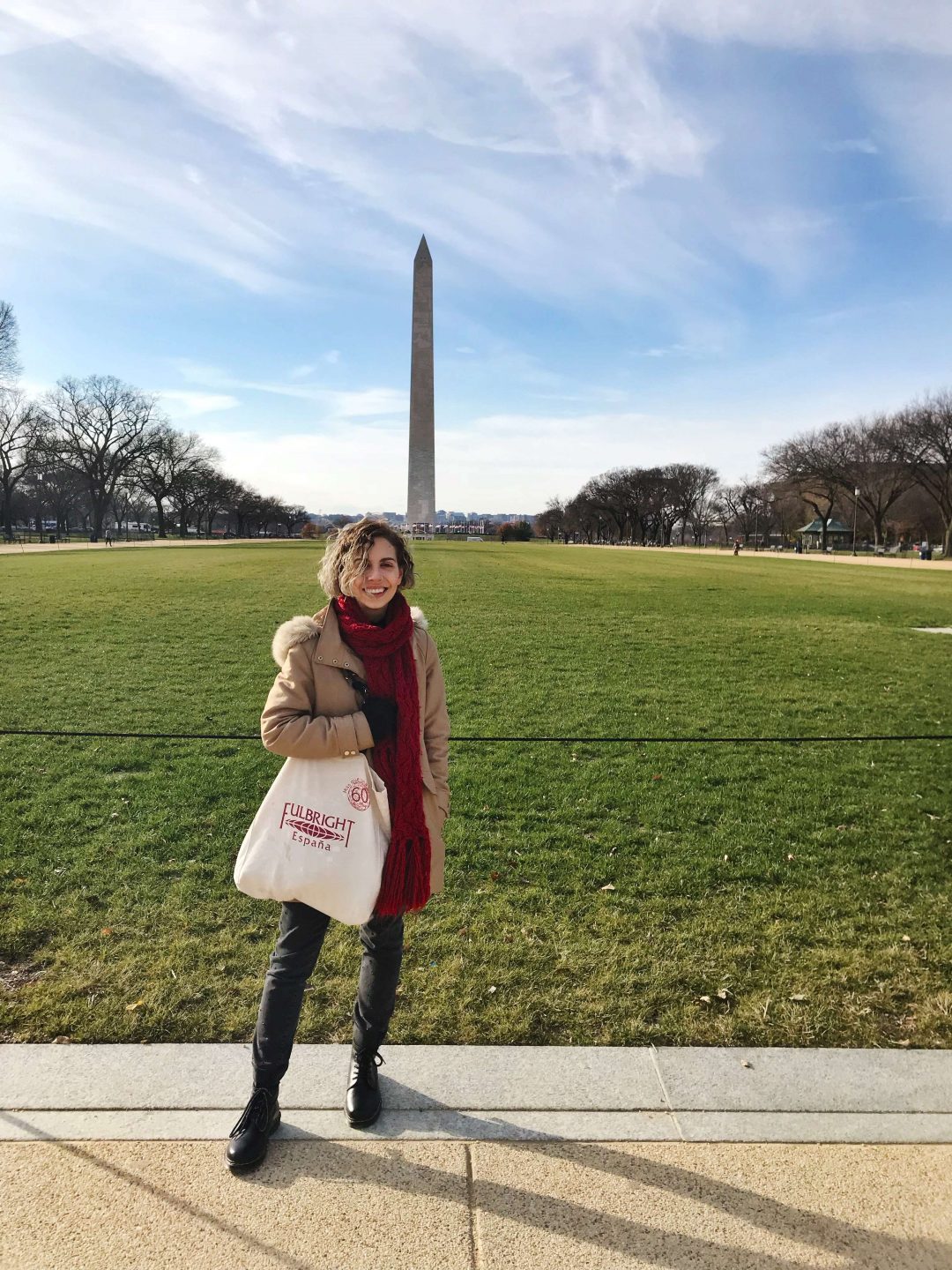By Jeffrey Thiele, Fulbright U.S. Student Open Study/Research Grantee to El Salvador
As I reflect on my time as a 2018 Fulbright grantee to El Salvador, it might be easy to say that I accomplished my mission. I wanted to use my master’s degree in philosophy and health to solve a real-world problem: increasing healthcare access for Salvadorans displaced by violence by working with Cristosal, a local NGO. My grant year did give me plenty of opportunities to put theory into practice, but what I didn’t see coming, however, was the role that music would play in that journey.
When I arrived in San Salvador, I knew very little about the local political, economic, and social situation. I quickly realized that there are no quick fixes to the problems that El Salvador faces, and that I wouldn’t be able to make the sweeping changes I had anticipated going into my Fulbright. While I plugged away with the newfound perspective that I would be doing more learning than doing, another project began to occupy my nights.
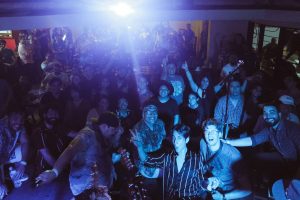
This is where Saxo Sue, my loyal, traveling saxophone, appears. Having recently fallen back in love with music during my master’s program, Saxo Sue had made the voyage with me to San Salvador, though I had little hope of finding much music there. The first month of my time with Saxo Sue in–country was spent going over old classical repertoire in the light of the evening sun. While I was making occasional improvisations and recording them, I wasn’t really moving forward musically.
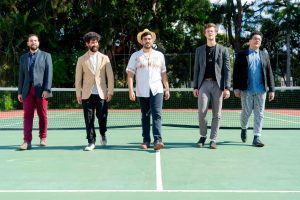
Two months in, one of my friends invited me to a gig where her friend’s boyfriend, a local trumpeter, would be playing with his group called The Zamora Brothers. I was so excited to learn that jazz was happening in the capital, and that there was such a vibrant music scene in a land where many people are still fighting for fundamental human rights. The concert got me thinking about the resilience of the arts and its unique ability to exemplify and push forward necessary human and social rights.
In the following weeks, Pipe (pronounced “pee-peh”), the trumpet player for the Zamora Brothers, invited me to a jam session at his house with another local band, Camelo. I connected with Camelo’s leader Jorge Gómez, who said Saxo Sue and I brought the final “oomph” and tonal character that the band was seeking. I was in.
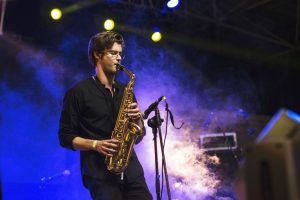
Apart from joining Camelo as their seventh member, I became involved in about eight other music projects in and around San Salvador, including establishing my own jazz project, called Buxo Don Luis. Both Camelo and Buxo Don Luis have been getting national, and even international, recognition, and will be touring outside of El Salvador in the coming year.
My involvement and (unexpected) fame in the Salvadoran music scene has given me a wider-reaching platform from which I can share my thoughts and work on human rights and social justice. More broadly, music has been a means to not only express myself, but to advance a broader rights movement inside and outside the country. I participated in a “Reach the World” virtual exchange with a New Jersey elementary school classroom, where I balanced our conversations about heavy Salvadoran social issues with some improvisations with Saxo Sue. With music as the bridge, we accomplished a key Fulbright goal of building mutual understanding between cultures.
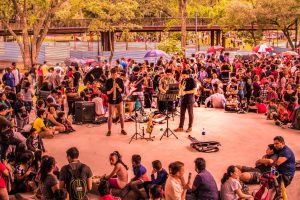
I came to El Salvador for research, and have come away pursuing my dream of becoming a bona fide musician. Music has helped me integrate into the community in San Salvador, empowered me to meet new people, and become an authentic participant in this beautiful culture. As I grow personally and professionally, I can share the joy of music and express the urgency of the situation in El Salvador.
U.S. Classrooms Celebrate International Education Week with Fulbrighters
November 18, 2019In celebration of International Education Week 2019, 10 Fulbright Foreign Language Teaching Assistants will visit elementary, middle, and high schools in Kentucky, Nebraska, North Carolina, and Michigan. The visits will take place from November 18 to 21, and are sponsored by the U.S. Department of State’s Bureau of Educational and Cultural Affairs (ECA), in partnership with Reach the World.
The Fulbrighters will share their home countries’ culture with students and describe their Fulbright experiences. The visits, with a diverse group of participants and classrooms, allow American students to build first-hand global knowledge, and help increase mutual understanding between the people of the United States and other countries. The visits build on ECA and Reach the World’s virtual exchanges partnership, in which U.S. exchange students studying overseas through Fulbright and other ECA exchange programs “meet” students in American classrooms.
Follow our visits to U.S. classrooms this week by using and following #Fulbright on social media.
Meet the Fulbright participants:
El Housseine Abouazza
Fulbright Foreign Language Teaching Assistant from Morocco
Fayetteville State University
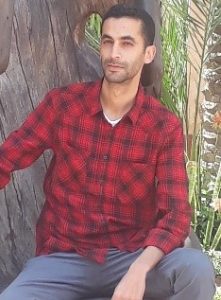
“My name’s Houcien Abouazza. I’m from Morocco, which means I’m African, and I’m 33 years old (my body insists that I look much younger, though!). I’ve been working as a high school English teacher for the past eight years. I enjoy my job immensely because I get the chance to work with thirsty young minds. I have a master’s in Translation Studies from Cadi Ayyad University in Morocco, and work as a translator between English and Arabic. I came to the United States in August 2019 on the Fulbright Foreign Student FLTA Program, and teach at Fayetteville State University in North Carolina. My focus is building a bridge between Americans and Moroccans through teaching Arabic and showcasing Moroccan culture with all its varied facets. Not only that, but the Americans I have met have been nothing but helpful in introducing me into their own culture, which has made me more conscious of my own. Programs like Fulbright help prevent the rise of global illiteracy.”
Raju Ahmmed
Fulbright Foreign Language Teaching Assistant from Bangladesh
University of Michigan
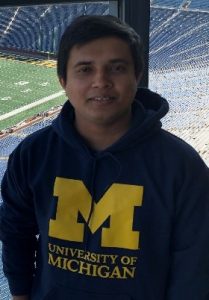
“Hello, I am Raju. I am a lecturer in English at Bangabandhu Sheikh Mujibur Rahman Maritime University in Bangladesh, where I teach communicative English courses to undergraduate students. My research interest is in developing second language skills, English for Specific Purpose (ESP) and Teaching English as a Foreign Language (TESOL). I graduated from the University of Dhaka in Bangladesh. Presently I work as a Fulbright Foreign Language Teaching Assistant at the University of Michigan, where I teach Bengali in the Department of Asian Languages and Cultures. I also assist in a seventh grade English class once a week at Scarlett Middle School. In my free time, I love cooking, meeting new people, and sharing my culture.”
Sarwa Azeez
Fulbright Foreign Student Program – MA Creative Writing, from Iraq
University of Nebraska-Lincoln
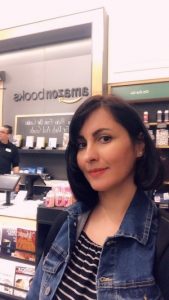
“Hi, I am Sarwa Azeez. I have completed a master’s in English Literature at Leicester University in the UK. My hometown is called Soran, which is a stunning mountainous town located in Iraqi Kurdistan. I have contributed to humanitarian work with refugee girls and children in my region. My main interests are reading and writing, especially writing poetry. I have published a poetry pamphlet called Remote. As a Fulbrighter, I am studying for my second master’s degree in Creative Writing at the University of Nebraska-Lincoln.”
Huda Hosson
Fulbright Foreign Student Program – MS in Electrical Engineering, from Libya
University of Nebraska-Lincoln

“My name is Huda, and my mission in life is to bring positive change to the world and to help humanity evolve and grow. I chose science and engineering to be my keys to doing so. I am currently researching different implementations of solar power systems to help lead the world to sustainability. I have experience as a primary school teacher and as a lab supervisor in college. I’ve been involved with different civil society organizations to help promote peace, empower women, and encourage scientific work. I enjoyed spending the last year studying in Italy and I feel very fortunate to be studying here in the United States now. Oh, I am very passionate about yoga, too!”
Alexandre Lopes Silva
Fulbright Foreign Language Teaching Assistant from Brazil
University of Nebraska-Lincoln
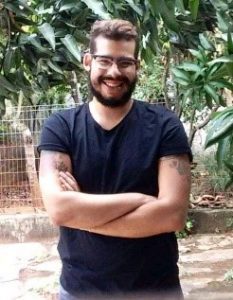
“Hi, I’m Alexandre. I worked as an English as a Foreign Language teacher in Brazil, and am currently a Portuguese teacher and the mediator of the Portuguese Club at UNL. I am also taking graduate-level courses on methodology and applied linguistics. I am very interested in second language acquisition, and gender and sexuality studies. My hobbies include ballet, studying foreign languages, and cinema.”
Meltem Ozgul
Fulbright Foreign Language Teaching Assistant from Turkey
Michigan State University
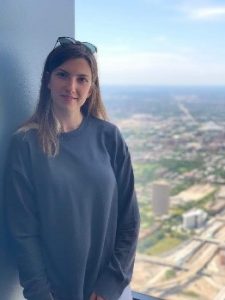
“Hi, I am Meltem. I am an English teacher at a secondary school in İstanbul. I studied English Language Teaching at Yeditepe University in İstanbul, and have worked with different levels of language learners while teaching English for four years. Last year, I got my certificate in Teaching Turkish as a Foreign Language. Currently, I am a Fulbright Foreign Language Teaching Assistant at Michigan State University. Here, I teach Turkish to college students and attend cultural events to promote Turkish culture in America.”
Gulchekhra Rakhimova
Fulbright Foreign Language Teaching Assistant from Uzbekistan
Michigan State University
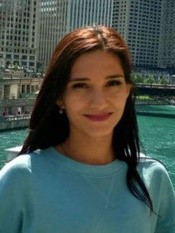
“Hello! I am Gulchekhra Rakhimova from Uzbekistan. I am a Fulbright Foreign Language Teaching Assistant in Uzbek language at Michigan State University. I have earned my bachelor’s and master’s degrees in English Linguistics and Philology at Uzbekistan State World Language University. I received my Professional Development in Teaching English as a Second Language Certificate from Glasgow Caledonian University in Scotland. As a cultural ambassador, I’ve joined the Community Volunteering International Program (CVIP), and have been doing cultural presentations and events to present my culture and my country.”
Olajide Salawu
Fulbright Foreign Language Teaching Assistant from Nigeria
Fayetteville State University
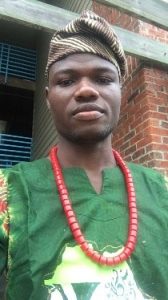
“Enle o, I am Olajide Salawu. I work as a research assistant at Obafemi Awolowo University in Nigeria, from where I also earned my bachelor’s and master’s degrees in Literary Studies. As a cultural ambassador, I am currently a Fulbright Foreign Language Teaching Assistant at Fayetteville State University, where I have held different workshops on Yoruba language and culture. Next spring, I will teach first-year students in an “Introduction to Yoruba Language” course. In my spare time, I like to watch movies and write poetry. My work can be found in Transition, Rattle, Salt Hill Journal, New Orleans Review, African Poetry Book Fund and elsewhere.”
Mariia Velichko
Fulbright Foreign Language Teaching Assistant from Russia
Michigan State University
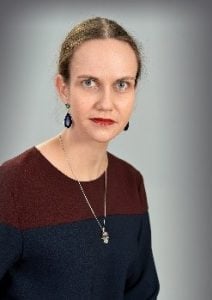
“Hello, I am Maria! I graduated from Magnitogorsk State University, where I majored in Linguistics, Translation and Interpretation, and worked as an Assistant Professor in the Department of Translation and Interpretation. My main professional interests are methods of teaching English and Russian, all kinds of translation and interpretation, and cross-cultural communication. I currently assist students in the “Russian 420” course at Michigan State University, host a Russian Club, and organize and take part in cultural outreach events to promote Russian culture in America. I am interested in fashion history, art, photography, and am always looking for things that can inspire me.”
Chiu-Li Wu
Fulbright Foreign Language Teaching Assistant – Taiwan people
University of Kentucky

“Hello, I’m Chiu-Li Wu, but most of my friends just call me Sherry! I love sharing Chinese culture, and my main professional interests are psychology, school counseling, special education, and teaching English and Chinese as a foreign language. I also like traveling and working as a volunteer in the community. I’m currently a teaching assistant of “Chinese 101” at the University of Kentucky and organize some cultural events. I enjoy helping my students experience the art of Chinese characters, Chinese woodblock painting, calligraphy, brush painting, paper cutting, pop songs, and Chinese cuisine.”
The Fulbright Program is pleased to congratulate three alumnae on their selection as 2019 MacArthur Fellows! “Genius” Fellows Andrea Dutton (2020 U.S. Scholar to New Zealand), Saidiya Hartman (1997 U.S. Scholar to Ghana), and Stacy Jupiter (2002 U.S. Student to Australia) will each receive a $625,000, no-strings-attached award from the MacArthur Foundation to support their creative, intellectual, and professional projects.
According to the MacArthur Foundation’s website, fellowships are awarded to “talented individuals who have shown extraordinary originality and dedication in their creative pursuits and a marked capacity for self-direction.” It lays out the following criteria for the selection of Fellows:
- Exceptional creativity
- Promise for important future advances based on a track record of significant accomplishments
- Potential for the Fellowship to facilitate subsequent creative work.
Learn more about how each Fellow’s experience as a Fulbright participant supported and inspired their professional goals:
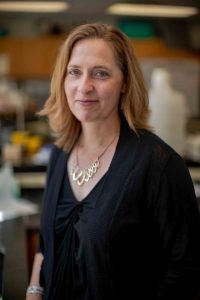
Andrea Dutton
Andrea Dutton: A University of Wisconsin-Madison geochemist and paleoclimatologist specializing in sea levels, Andrea Dutton will travel to New Zealand as a Fulbright U.S. Scholar in the spring of 2020. During her grant, she will analyze local coral and coastlines to better understand how sea levels are changing. Dr. Dutton is motivated to study and share her findings with people and communities specifically affected by rising seas.
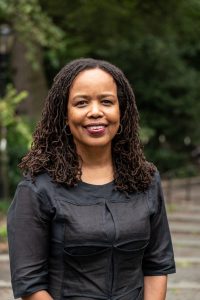
Saidiya Hartman
Saidiya Hartman: A literary scholar and cultural historian, Saidiya Hartman “explores the limits of the archive” through telling the stories of African slaves, free black people, and other marginalized individuals excluded from the recent American past, and how those experiences inform the contemporary African American experience. During her nine months as a Fulbright U.S. Scholar to Accra, Ghana in 1997, Dr. Hartman studied the Atlantic slave trade through her project, entitled, “Belated Encounters on the Gold Coast: Captives, Mourners, and the Tragedy of Origins.” She has authored two books and is a professor of English and comparative literature at Columbia University.
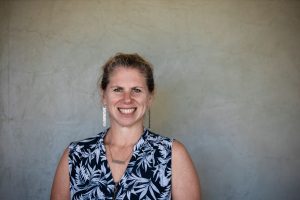
Stacy Jupiter
Stacy Jupiter: A marine scientist, Stacy Jupiter works with indigenous Melanesian communities in Fiji, the Solomon Islands, and Papua New Guinea on ecosystem management by integrating local cultural practices with field research. Dr. Jupiter has collaborated on Fiji’s first “Ridge-to-Reef” management plan, which is currently used as a template for other areas in the region. During her Fulbright to Australia as a U.S. Student in 2002, she worked to contain and prevent microbial blooms in Moreton Bay, Queensland.
By Lindsey Liles, Fulbright English Teaching Assistant to Brazil
It’s nowhere near dawn, but Karina and I are already awake and dressed, standing outside the barn, laying out the traditional Gaucho tack we will use to saddle the horses. Karina’s horse, Cavalo de Fogo, pricks his ears and shifts his weight, sensing our excitement and no doubt wondering why he’s being fed his breakfast at three in the morning.
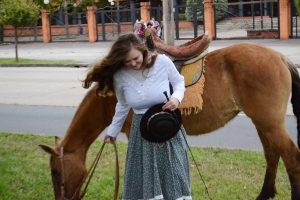
It’s the 21st of September, a special day in Porto Alegre, Brazil. For the whole month, Gauchos come from all over the state of Rio Grande do Sul to celebrate Semana Farroupilha, an event which commemorates the Farroupilha Revolution in 1835 and is a tribute to Gaucho culture and traditions. The Gauchos set up a temporary camp made of piquetes–open wooden structures that look like barns–and stay there for the month drinking chimarrao tea, grilling traditional Brazilian churrasco barbeque, and riding horses. The celebration culminates on the 21st, with a parade of hundreds of Gauchos in traditional dress through the city center. Through a little luck and a lot of work learning to ride sidesaddle over the past few months, I will be riding with them in the parade.
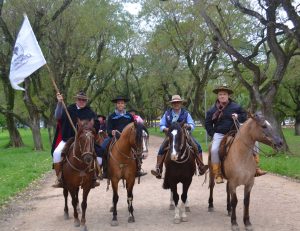
I am a Fulbright English Teaching Assistant here in Brazil, and signed up on a whim for a horseback ride with a local woman named Karina. Since that first ride, I have learned to ride with a traditional Gaucho saddle, bareback, and sidesaddle; joined a women’s Gaucha riding group; and made many friends in the Gaucho community. What started as a one-time activity has become a long-term project that has allowed me to study Gaucho culture while learning to ride among these traditional South American cowboys.
We arrive at another farm outside the city at 5:00 AM, and load the horses on a truck that will take them into the city center, and the parade. At the farm, it’s organized chaos–20 or so horses are tied out front and bundles of tack are everywhere. The other 18 riders in our group are all arriving too, dressed in bombachas, the wide billowing pants tucked into soft leather riding boots, crisp shirts, and the trademark wide and flat Gaucho hat.
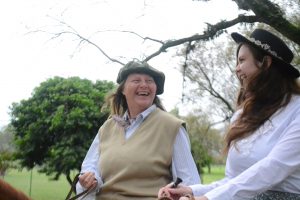
Karina and I make small talk and check our horses. The horse I will ride, Helena, is a little restless. I give her a treat from the stash I brought along; I have learned the hard way that it’s in my best interest to keep her happy. I meet some of the other riders for the first time. “An American, riding with us!” they exclaim, and I explain that all I know of Gauchos, horses, and riding I know from my time here, and that it is an honor for me to ride among them. They welcome me with all the kindness and authenticity that I have experienced so many times since arriving in Brazil.
Once we arrive at the grounds of the parade, it’s time to saddle up. I carefully put on the riding skirt that Karina has lent me–her mother hand-sewed it for her 30 years ago, and it is meant to be ridden sidesaddle. Karina gives me a leg up, and I situate my right leg over the horn that secures a sidesaddle rider and let my left leg rest lightly on the stirrup. The idea is to look dainty and effortless; the reality is to hang on for dear life with the right leg hidden under the skirt. Karina arranges the folds of blue fabric so they sweep elegantly across Helena’s side. She looks at us, probably recalling the hours she spent teaching Helena and I to work together to keep me balanced in the saddle, and smiles. “Perfeito,” she pronounces, and I’m not sure if she is prouder of me or Helena. She mounts Cavalo de Fogo, and we are off.
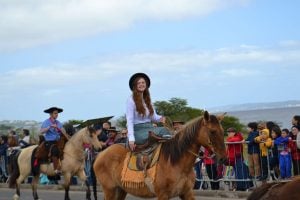
As I ride Helena down the streets of Porto Alegre, surrounded by my Gaucho group and with Karina in front of me, I can’t help but think that more than anything, this is the heart of the Fulbright Program–finding common threads with people across cultures, languages, and ways of life. In my case, I share with the Gauchos the love of a gallop down a dirt road, a passed cup of chimarrao, and the open spaces of the countryside. The parade winds down past Guaiba Lake and towards the city center, and I look at the smiling faces of the people watching. I realize suddenly that they don’t know I am not Brazilian, and that it doesn’t matter. Today is about honoring Gaucho culture and celebrating a love of horses and a way of life that I have been fortunate enough to experience.
Infectious Enthusiasm: How My Fulbright Year Renewed My Love For Teaching
October 22, 2019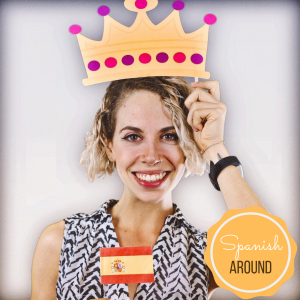
I’m on a plane. Destination: Bangkok. I’m moving to Thailand to teach Spanish at Chulalongkorn University, the most prestigious university in the country, as part of an international teaching program funded by the Spanish Ministry of Education. As I float above the clouds, I can’t help but think back to my time with the Fulbright Program and feel a sense of profound gratitude. The Fulbright Program, after all, is the reason why I’m on this plane. That’s because the year I spent as a Foreign Language Teaching Assistant (FLTA) at the University of Arkansas managed to do what I thought impossible: re-kindle my passion for teaching.
Let’s back up a little. In 2015, I moved to Scotland, where I taught Spanish at the University of Glasgow for two years. I loved teaching, but I wasn’t in the right mindset, and each day seemed harder to finish. I wasn’t sure what I wanted to do with my life. So I made a decision: I returned to Spain to find something else to do. Moving back home after two years of independence proved to be hard, but I applied for a Fulbright Foreign Language Teaching Assistantship. I had no expectations of getting it, but—thank the universe—I did!
In August 2018, I moved to Fayetteville, Arkansas, to begin my time as an FLTA. At first, I found the educational system a bit challenging to adapt to for several reasons. To start with, teaching assistants in my home country of Spain typically take on more of an observing and learning role, teaching with the support of the lead teacher for practice. I was surprised to find that here, teaching assistants direct language instruction. Soon, though, I allowed myself to take control of my classes and had lots of fun with my students. I taught two Intermediate Spanish II groups per semester, with around 10-15 students per group.
My first shock was finding out I would teach at 7:30 in the morning! Classes in Spain and in other countries, such as Scotland, where I had worked before, start at 9:00 A.M. at the earliest! I soon discovered, however, that most of the students really wanted to be there – even at that early hour. My students were receptive, active, funny—everything a teacher could ask for. I’m not one to stick to dry lessons that could lead to a group full of sleeping students, so I started creating my own materials while still following the official syllabus. I loved spending hours designing posters and making up games. I loved practicing with my students, and the best part was that they seemed to love it, too.
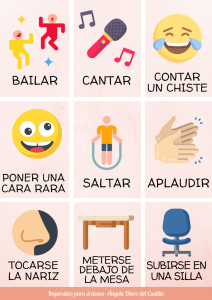
Colorful, eye-catching graphics encourage foreign language students to engage with the material
My enthusiasm rubbed off on my supervisors, who were supportive of me: they bought me materials — printed in full color, and introduced me to new teaching resources. I wanted to do more, so I took online courses in design and Spanish teaching methodologies as a way of exploring my newfound creativity. Yes, it was a lot of work, but if you put your effort and passion into something, your students will notice and be inspired to work harder, too. In an evaluation, one of my students wrote, “The devil works hard, but Ángela works harder.” I need that saying printed on a t-shirt!
My Fulbright experience wasn’t perfect. Moving to the other side of the world, to a different culture with a different educational system and values, not knowing what to expect, and all on my own, wasn’t easy. My advice to future applicants is to make an effort to integrate yourself within the community. There will always be hard times when you feel insecure and homesick, but if you give this opportunity a chance, it will be worth it. And, you never know: you may also discover your passion and future vocation while on Fulbright.
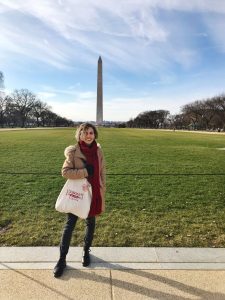
Ángela visits Washington, DC with her trusty Fulbright España tote bag!
If you want to know what Fulbright can do for you, picture me in 2017: no job, no passion, and no idea of what to do with my life. Now, picture me in 2019: I love teaching and have found a new passion and a sense of self-confidence. Now, having landed in Thailand, I’m ready to continue on this newfound path where I love what I’m doing – all thanks to my time as an FLTA.


